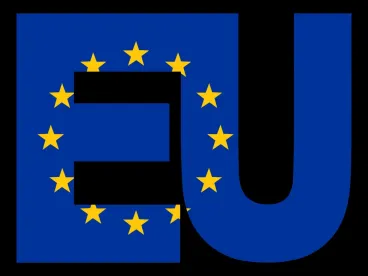On July 19, the European Securities and Markets Authority (ESMA) published its long-delayed and much anticipated advice to the European Commission (Commission) in relation to the extension of the Alternative Investment Fund Managers Directive (AIFMD) marketing passport to non-EU Alternative Investment Fund Managers (AIFMs) and Alternative Investment Funds (AIFs). In it, ESMA gives broadly positive advice in relation to 12 countries: Australia, Bermuda, Canada, Cayman Islands, Guernsey, Hong Kong, Japan, Jersey, Isle of Man, Singapore, Switzerland, and the United States—with some reservations, as noted below.
Currently, non-EU AIFMs and AIFs must comply with each EU country’s national private placement rules when they market funds in that country, whereas under AIFMD, EU AIFMs managing an EU AIF have the benefit of a marketing passport so that those AIFs can be marketed throughout the European Union.
A year ago, in July 2015 (see the Corporate & Financial Weekly Digest edition for July 31, 2015), ESMA published its first advice on the application of the passport to six non-EU countries (Guernsey, Hong Kong, Jersey, Switzerland, Singapore and the United States). At that time, ESMA deemed Jersey, Guernsey and Switzerland as being “equivalent,” but ESMA could not recommend equivalence for the United States because of competition concerns. In response to the July 2015 advice, the Commission elected to wait for ESMA to approve more countries as being “of equivalence” before endorsing these decisions. ESMA has now reassessed the initial list of jurisdictions and several others, looking at how equivalent their competition rules, market disruption, regulatory enforcement, market access, investor protection and the monitoring of systemic risk are to the rules in the European Union.
In the new advice ESMA comments that:
-
United States: There were no significant obstacles regarding investor protection and the monitoring of systemic risk that would impede the application of the AIFMD passport to US AIFMs or AIFs. With respect to the competition and market-disruption criteria, while ESMA considers there to be no significant obstacle for AIFs that are privately placed, it does consider that for AIFs marketed by way of a public offering that there is an “un-level playing field” between EU and non-EU AIFMs as market access conditions, which would apply to these US funds in the European Union under an AIFMD passport would be less onerous than the market access conditions applicable to EU funds in the United States. ESMA suggests, therefore, that the European Union consider options to mitigate this risk.
-
Canada, Guernsey, Japan, Jersey and Switzerland: There are no significant obstacles impeding the application of the AIFMD passport to these countries.
-
Hong Kong and Singapore: If ESMA considers the assessment only in relation to AIFs, there are no significant obstacles impeding the application of the AIFMD passport to AIFs in Hong Kong and Singapore. However, ESMA notes that both Hong Kong and Singapore operate regimes that facilitate the access of Undertakings for Collective Investment in Transferable Securities (UCITS) from only certain EU Member States to retail investors in their territories.
-
Australia: There would be no significant obstacles regarding market disruption and obstacles to competition impeding the application of the AIFMD passport to Australian entities, as long as the Australian regulator extends to all EU Member States the “class order relief,” currently available only to some EU Member States.
-
Bermuda and the Cayman Islands: ESMA cannot give definitive advice with respect to the criteria on investor protection and effectiveness of enforcement since both countries are in the process of implementing new regulatory regimes and the assessment will need to take into account the final rules in place.
-
Isle of Man: ESMA finds that the absence of an AIFMD-like regime makes it difficult to assess whether the investor protection criterion is met.
The possible extension of the passport to such countries (which remains subject to sign-off by each of the Commission, Parliament and Council) bodes well for the UK, which voted last month to leave the European Union. Post-“Brexit,” as a non-EU jurisdiction that has EU law in effect, the UK also should be approved by ESMA with a positive “equivalence” determination, meaning that UK AIFMs and AIFs would be treated broadly as they are today—allowing UK firms to retain their “passporting” access to the single market, as at present.
A copy of the ESMA advice is available here.




 />i
/>i

